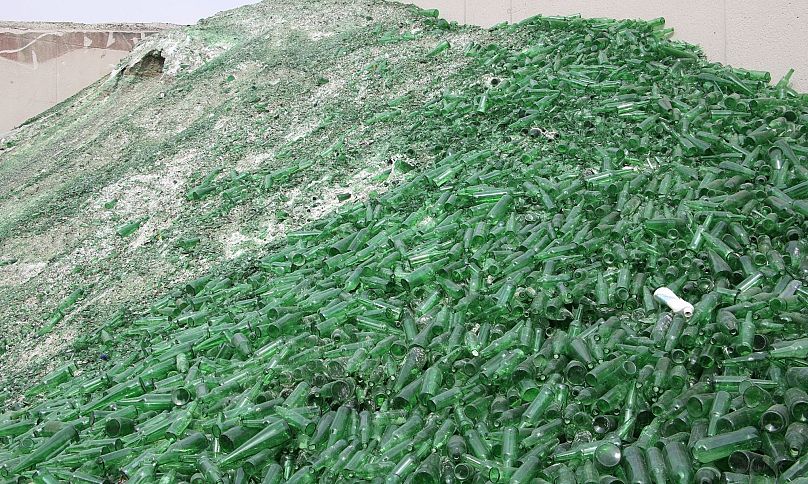One manufacturer in Northern Ireland is using biofuels to minimise carbon emissions in the glass-making process.
A company in Derrylin, Northern Ireland has set out on a mission to create “the world’s most sustainable glass bottle”.
Compared to its packaging counterparts, glass is one of the more sustainable solutions. Unlike plastic, glass can be recycled indefinitely in a closed-loop cycle, and is predominantly made of abundant, natural raw material like sand and cullets (waste glass).
However, the production process behind the creation of glass has been criticised for its energy usage. One manufacturer in Northern Ireland has levelled up minimising carbon emissions in the glass-making process.
A biofuel future for glass?
Encirc has successfully managed to make bottles using renewable biofuels which the manufacturer says have ultra-low carbon emissions.
The trial paints a “very bright and sustainable future” for the industry, says Fiacre O’Donnell, head of sustainability at Encirc’s parent company, Vidrala.
“We’re also looking into the development of hydrogen, and advancements in electric melting to truly discover the future of glass production. These ultra-low-CO2 containers we’re making are being produced for some of the biggest names in the drinks industry.”
Moving away from fossil fuels to ultra-low carbon alternatives made from waste materials can reduce the carbon footprint of each bottle by up to 90 per cent, the manufacturer says. By using up to 100 per cent recycled glass they believe they can limit the lifetime impact of their products even further.
“We now know that glass can be the most sustainable of all packaging types and must all work together to ensure that happens,” says Encirc’s managing director, Adrian Curry.
What’s the problem with glass production?
Although glass is one of a few materials that can be endlessly recycled, a study released in November of last year found that the energy and resources used to manufacture it could mean that it is ultimately four times worse for the environment than plastic.
A massive amount of energy is needed to turn raw materials, including silica sand, soda ash and dolomite, into glass. There are also environmental impacts from non-recycled glass such as land degradation and water pollution as well as health concerns from tiny silica particles.
Despite a high level of durability meaning that they can be reused between up to 20 times, most glass bottles are thrown away after just one use. The study’s authors at Southampton University in the UK said that, while recycling was helpful, we should be looking at refilling and bottle return schemes as a way of cutting the environmental impact of glass.
Encirc says its use of biofuels could be the sustainable solution the industry is looking for.
Aston Fuller, general manager of Glass Futures, says, “Through this trial we are beginning to see the dawn of Net-Zero technologies [and] a new alternative low-carbon fuel.
“These initiatives will catalyse the industry towards more sustainable, zero carbon glass production.”












